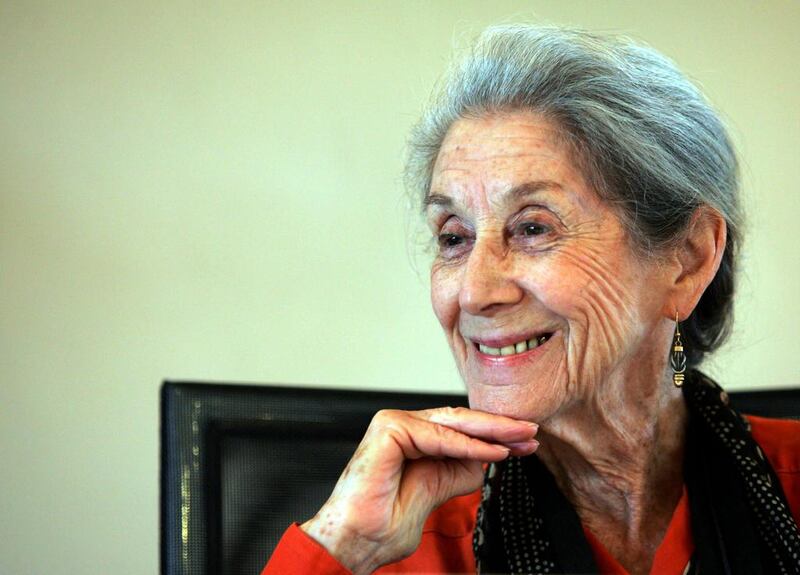The South African Nobel Prize-winning writer and anti-apartheid activist Nadine Gordimer, who became an icon through her unique insights into the country’s social agonies, has died at the age of 90.
Through 15 novels, several volumes of short stories, non-fiction and other works published in 40 languages around the world, Gordimer eviscerated white-minority rule under the apartheid system and its aftershocks once democracy had been achieved in 1994.
The writer, who was awarded the Nobel Prize for Literature in 1991, died peacefully in her sleep at her home in Johannesburg on Sunday, her lawyers said.
Her reputation rests on a series of novels including A Guest of Honour, The Conservationist, Burger's Daughter, July's People and A Sport of Nature, which the Nobel committee called "magnificent epic writing".
For Gordimer, her profession was an affliction.
“Writing is indeed, some kind of affliction in its demands as the most solitary and introspective of occupations,” she once said.
The anti-apartheid activist once said it was not truth itself which was beauty, but the hunger for it.
She found this hunger at a young age when, growing up in her well-off, racially segregated neighbourhood, she spent her childhood secluded in libraries.
“Only many years later was I to realise that if I had been a child in the black category I might not have become a writer at all, since the library that made this possible for me was not open to any black child,” she said in her Nobel acceptance speech.
Born on November 20, 1923, Gordimer grew up in an affluent suburb of the gold-mining town of Springs, east of Johannesburg.
Her mother believed she had a weak heart and often kept her home from school. With time on her hands, she started writing at the age of 9.
She published her first story, Come Again Tomorrow, in the children's section of a Johannesburg magazine when she was 14.
Gordimer came face-to-face with the liberation struggle when her best friend, Bettie du Toit, was arrested for anti-apartheid activities in 1960.
She went on to chronicle apartheid society, the liberation struggle, its forbidden friendships and its underground networks.
“To have lived to see the end coming, and to have had some tiny part in it has been extraodinary and wonderful,” Gordimer said after the end of apartheid in 1994.
In 2006 Gordimer presented the country’s first black president Nelson Mandela with Amnesty International’s Ambassador of Conscience Award, hailing his lifelong fight for justice.
“Nelson Mandela belongs to the world,” she said while underlining that South Africa’s elder statesman did not recoil from criticising the shortcomings in his beloved new Rainbow Nation.
In her final years she kept out of the public spotlight, preferring to commit her complex views on the country’s young democracy to paper than talk about them.
In one interview, she said of the new South Africa: “There are things that are remarkably good and things that are very, very worrying.”






